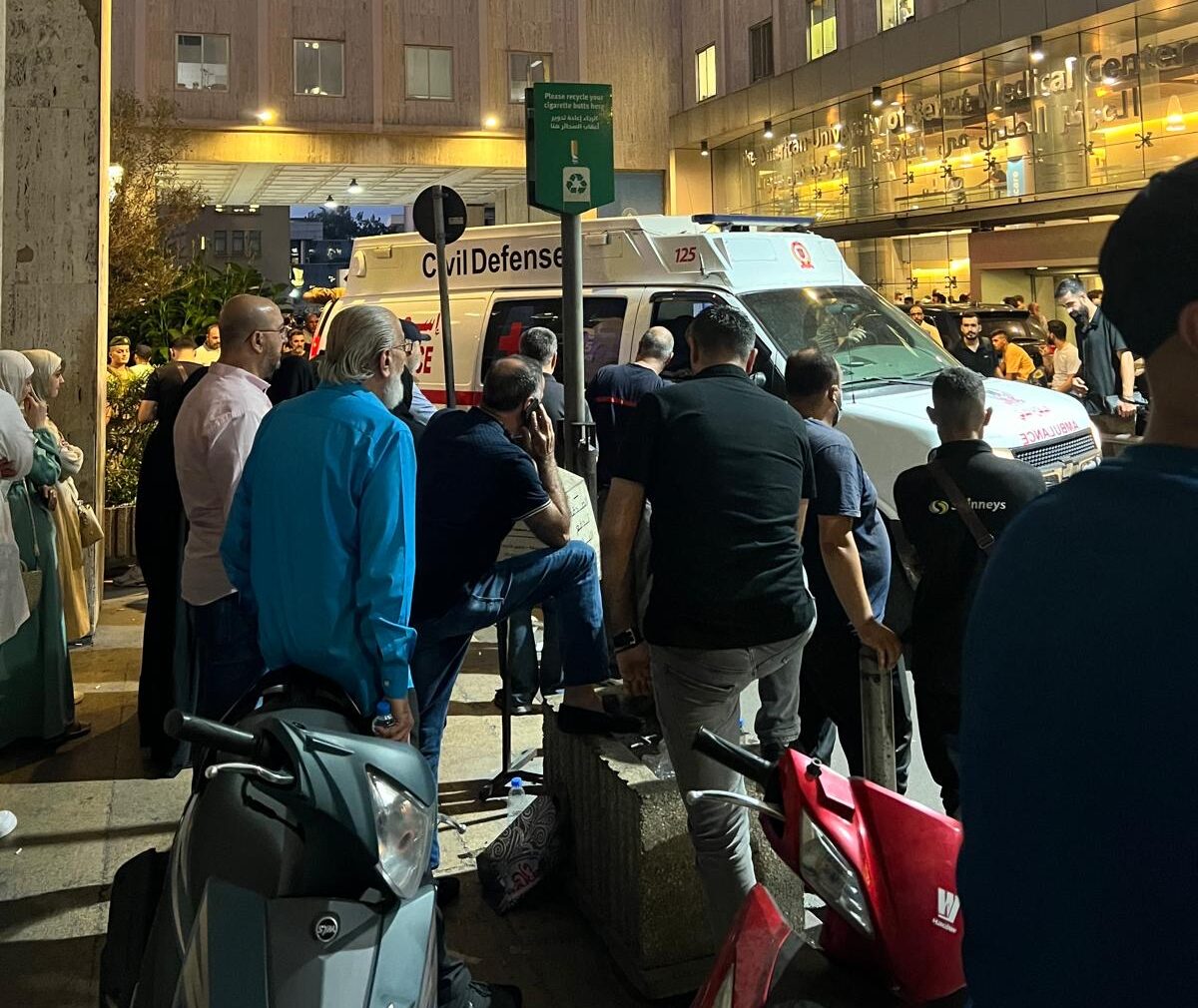On Tuesday evening, thousands of pagers belonging to members of Hezbollah simultaneously detonated across Lebanon, leading to thousands of injuries and the martyrdom of nine individuals.
In response to the attack, ambulances, red cross members and civil defense members quickly took to the streets to aid and treat the wounded. Lebanon’s crisis operations center has urged medical workers to head to hospitals to handle the influx of wounded and advised against using pagers. The Lebanese Red Cross has dispatched over 50 ambulances and 300 emergency medical staff to assist with victim evacuations.
At the American University of Beirut Medical Center (AUBMC), one of Beirut’s largest hospitals, the streets are filled with anxious relatives waiting for news, people offering to donate blood, and curious onlookers drawn to the scene. Soldiers from the Lebanese army stand guard, their vehicles sealing off the roads, while reporters scramble for a spot to capture the chaos.
Mohamad Ali, the owner of a barbershop in Hamra, called the hospital to offer blood donations but was informed that there is no immediate need. He mentioned that many people, particularly from Dahieh, have already donated, and the hospital currently has enough supplies.
“I’m ready to donate blood because it’s not only Hezbollah fighters who got hurt. It’s also children and women who were close to the explosives,” says Mohamad Ali.
A wave of explosions from Hezbollah pagers, used for communication, continued for about an hour after the initial blasts, which occurred around 3:45 PM. Most of the pager explosions occurred in Beirut’s Dahieh, as well as in Tyre, Nabatieh, and Marjayoun in southern Lebanon, and in Bekaa, according to L’Orient Today.
So far, at least nine people have been reported killed and 2,750 others injured, including 200 in critical condition, among them Hezbollah fighters and medics, according to security sources and the Lebanese health minister. However, a number of injuries have also been reported among civilians not connected to the party, as detonations also took place in areas with a high foot traffic, such as supermarkets.
Sons of top Hezbollah officials killed and wounded
Many of the injured were Hezbollah fighters, including sons of high-ranking officials within the group. Among those killed was Mahdi Ammar, the son of Hezbollah parliament member Ali Ammar. Additionally, two sons of Wafiq Safa and the son of Hasan Fadlallah were reportedly among the injured, according to multiple media reports.
Iran’s ambassador to Lebanon, Mojtaba Amani, sustained a “superficial injury” in one of the pager explosions and is currently under observation at a hospital, according to Iran’s semi-official Fars news agency.
Hezbollah’s largest security breach in a year
Lebanon’s Information Minister, Ziad Makary, condemned the detonation of Hezbollah pagers as an act of “Israeli aggression.” Hezbollah echoed this, blaming Israel for the blasts and vowing it would face “fair punishment.”
A Hezbollah official, speaking anonymously, described the incident as the group’s “biggest security breach” in nearly a year of conflict with Israel.
There has been no response from the Israeli government regarding the explosions.
However, earlier on Tuesday, Israel’s domestic security agency, Shin Bet, announced it had foiled a Hezbollah plot to assassinate a former senior defense official in the coming days, according to Reuters.
Shin Bet revealed they had seized an explosive device with a remote detonation system, operated via a mobile phone and camera, which Hezbollah had planned to use from Lebanon.


